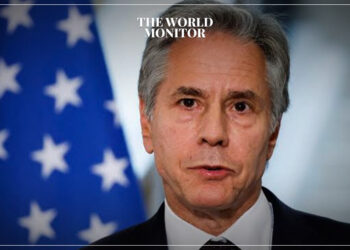The United Nations High Commissioner for Human Rights, Volker Türk, on Thursday, called for an international investigation into the war violations between Israel and Hamas in the Gaza Strip, warning of an “explosive” situation in the occupied West Bank. This call for a thorough investigation into the deepening crisis reflects the UN’s ongoing commitment to addressing human rights violations worldwide.
In response to Türk’s call, Israeli Ambassador to the United Nations organizations in Geneva, Merav Shaar Eilon, remarked that international law is not a “suicide pact,” highlighting the complexity of international law in times of conflict. On the other side, the Palestinian delegate Ibrahim Khraishi, appealed to member states to pay attention to the “genocide” Israel is committing in Gaza.
During a briefing to the member states of the organization, Türk spoke of “very serious allegations about multiple and profound violations of international humanitarian law, regardless of the perpetrator, requiring thorough investigation and comprehensive accountability.” His visit to the region included a stop at the Rafah border crossing between Egypt and Gaza.
Türk’s call for an international investigation into the Israel-Hamas conflict comes amid increasing global attention to the humanitarian and legal complexities of the situation. The conflict has led to significant civilian casualties and raised questions about the conduct of both parties under international law.
The Israeli mission in Geneva quickly dampened Türk’s hopes, stating that Israel sees “no benefit that a visit by the High Commissioner to Israel at this time could bring.” This statement indicates the strained relationship between Israel and the UN regarding the investigation and accountability in conflict zones.
The context of Türk’s request is critical. On October 7, Hamas launched an attack on Israel, resulting in approximately 1,200 casualties, mostly civilians, as per Israeli authorities. About 240 people, including foreigners, were reportedly abducted from Israel and taken to Gaza. In response, Israel vowed to “eliminate” Hamas, designated as a terrorist organization by the United States and the European Union, and has since relentlessly bombed Gaza and imposed a “complete blockade.” A ground operation commenced on October 27, with the bombing reportedly killing over 11,500 people, according to Hamas’ Health Ministry figures.
Türk expressed deep concern about the escalating violence and acute discrimination against Palestinians in the occupied West Bank, including East Jerusalem. He emphasized that the situation had become “explosive” and had far surpassed a mere early warning stage. He urged all parties to recognize the equal value of all human lives and highlighted the humanitarian disaster and human rights violations occurring.
In the meeting, Israeli Ambassador Merav Shaar Eilon argued that if a state could not defend itself or was criticized for doing so in line with international law, it would inevitably embolden terrorist organizations. On the other hand, the Palestinian permanent representative to the UN in Geneva, Ibrahim Khraishi, urged member states to wake up to the severe violations committed by Israel in Gaza, describing them as “genocide.”
This development highlights the ongoing struggle to address and resolve complex international conflicts, especially in regions like Gaza. The international community continues to grapple with how to effectively intervene and ensure accountability in situations where human rights are at stake. The call for an international investigation by the UN High Commissioner for Human Rights signifies a crucial step towards understanding and potentially resolving the deep-rooted and ongoing conflict between Israel and Palestine.






